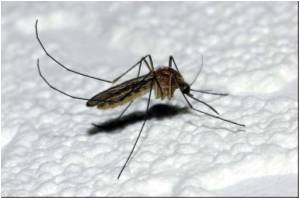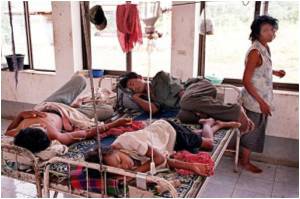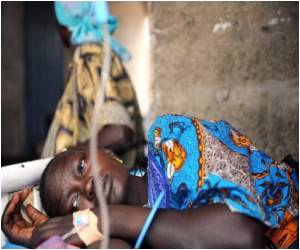The World Health Organisation warned Thursday that resistance to malaria drug artemisinin appeared to be spreading in the region from the Cambodia-Thailand border, where it was first detected.

"There is also concern that resistance could spread from the Cambodia-Thailand border to Africa, as it did with anti-malaria drugs such as chloroquine and sulfadoxine-pyrimethamine in the 1960s and 1970s," it added.
Pascal Ringwald, who co-authored a WHO study into the issue, said the WHO is undertaking "complementary studies to confirm that it is indeed drug resistance. That should take a year."
In February 2009, anti-malarial drug resistance was confirmed by the WHO at the Cambodia-Thailand border.
But the latest WHO study found that some 10-20 percent of patients at the Myanmar-Thailand border continued to show signs of malarial parasites in the blood after a three-day treatment with artemisinin combination therapy.
Likewise, at the China-Myanmar border, studies show that a quarter of patients who took oral artesunate monotherapy remained parasitaemic on the third day of treatment.
Advertisement
The WHO called for "careful monitoring" on the issue, and said that only 34 percent of malaria-endemic countries are complying with recommendations to monitor the efficacy anti-malarial drugs.
Advertisement
Source-AFP













